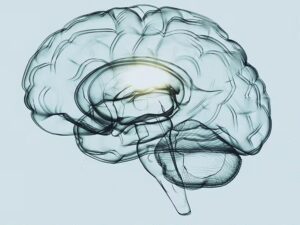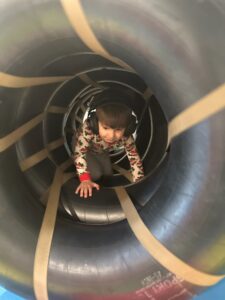BLOG

Retained Primitive Reflexes: How They Impact Learning, Behavior, and Regulation
If your child struggles with attention, coordination, or behavior—even though you’re doing “all the right things”—there may be a hidden root cause: retained primitive reflexes. Primitive reflexes are involuntary movement patterns that babies are born with. These reflexes help newborns during the birthing process, survive, and provide the foundation for motor development, posture, and coordination. When reflexes remain active past infancy, the body continues to react automatically instead of intentionally. This means the nervous system has to work harder to stay organized. And as pediatric occupational therapist we look at the whole child — movement, posture, sensory processing, attention, and daily skills.

Muscles, Movement, and Meltdowns: The Magic of Heavy Work
If your child is bouncing off the walls, struggling to focus, or meltdown at the smallest frustration. As pediatric occupational therapists, we often recommend heavy work as a part of a sensory diet to support kids’ regulation, attention, and body awareness. Heavy work refers to activities that activate the proprioceptive system- our body’s internal guide to where we are in space and how much force we’re using. Heavy work can help ALL kids regulate, but it’s especially beneficial for those who show signs of sensory dysregulation or poor proprioception. Research shows that proprioceptive input plays a critical role in emotional regulation, motor planning, and self-awareness and can reduce behavioral challenges.

Amygdala Hijacking: When Emotions Take the Wheel
Have you ever watched a toddler have a meltdown because their banana broke in half? You’ve witnessed an amygdala hijack in action. Psychologist Daniel Goleman refers to the term amygdala hijack as an emotional overreaction that occurs in the brain’s amygdala. This is the part responsible for processing emotions, especially fear and threat, it takes control of your behavior before your logical brain, the prefrontal cortex, can weigh in. They’re not being manipulative or “bad”—they’re experiencing a moment when emotion overrides logic. As a caregiver, it is important to co-regulate with them —to stay calm, create safety, and help guide them back to a regulated state. And just remember parents and pediatric professionals aren’t immune to hijacks either.

How Interactive Metronome Helps Kids Thrive
A powerful tool to use is the Interactive Metronome (IM)—a fun, engaging, and evidence-based training program that helps improve attention, coordination, and timing in the brain. Interactive Metronome (IM) is a computer-based therapy tool that combines auditory and visual feedback with physical movement from the participant, or with the assistance of the therapist, to improve neurological timing. IM measures timing down to the millisecond, allowing participants to gradually fine-tune their responses and learn self-control given through visual and auditory feedback. IM helps by strengthening the brain’s internal clock, i.e. neural timing, by improving connectivity between different neural pathways which links our thoughts to physical movements, influencing nearly every activity we do. IM is just another tool to help individuals thrive in daily life by not only improving neuro-timing but increasing their self-confidence and determination.

Understanding Therapeutic Listening as a Tool in Our Toolbox
As a parent, watching your child struggle with attention, emotional regulation, or sensory processing issues can be overwhelming. Therapeutic Listening is a sound-based intervention used by occupational therapists to support children with sensory processing challenges, developmental delays, attention issues, anxiety, and more. The auditory system has connections to various parts of the brain making sound a powerful way to access the nervous system and assist in daily participation and function. When we listen, it impacts not only our overall physiology, but also our behavior. Therapeutic listening is more than just music—it’s a powerful tool that helps children connect, calm, and grow from the inside out. Occupational therapists at PK Therapy are trained in Therapeutic Listening and can assist in providing more information.
